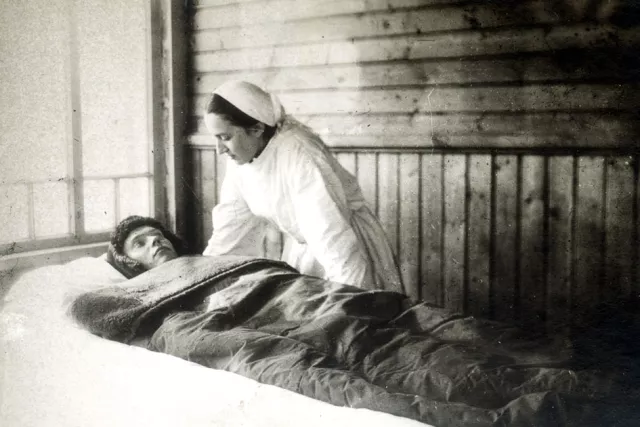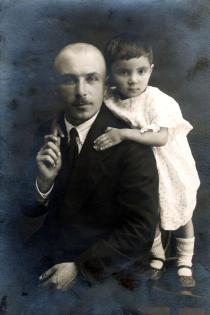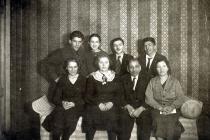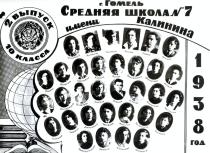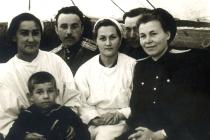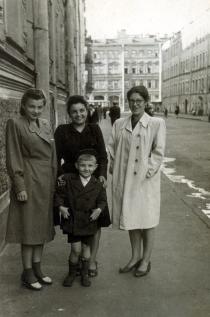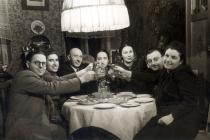Emma Balonova's sister-in-law
This photograph shows my sister-in-law in her medical unit at the front line. It was taken in 1943. Now I’d like to tell you about the rest of our family during the war.
My parents and sisters were evacuated in Gorky [Nizhniy Novgorod at present]. At the beginning of the war people lost each other, nobody knew where their relatives left for. Only later we gradually began to learn about the destiny of our relatives.
In Gorky my father died. He caught a cold, because they left in haste practically without clothes and had no money to purchase winter clothes. His disease had lung complication and he died of pneumonia, because it was impossible to get penicillin at that time.
And my younger sister served in the army. She was mobilized as soon as they arrived in Gorky. She served all the war long, and after the victory day they got aboard big lorries and started eastwards. In their battalion there were only women.
They all thought they were going to be demobilized. But they went on moving eastward through Moscow, through Urals, through Siberia. When they understood that they were not going home, they started shouting, crying.
It appeared that Japan drifted into war. So my sister had enough time to fight there till the end of the war. She was there together with her future husband (he was their commander).
And my husband's family remained in the besieged Leningrad. He managed to help them bringing food, because he served nearby. His sister Maria served in the same medical unit.
One day he brought his mother a pork chop, and she said 'Isaac, I never ate pork, so do you think now in my old age I shall eat it? Don't feel hurt, but I won't do it.'
She was very courageous and did not allow her relatives to lose heart. She forced them to get up in the morning, did not allow them to go to bed in the afternoon, and made them change linen and wash whenever it was possible.
In spring of 1943 I graduated from the College. They gave me my diploma written on the yellow parcel paper. They offered me to choose a place of work: Dzerzhinsk near Gorky or Zagorsk near Moscow.
I chose Zagorsk, because I hoped to see my husband one day before the end of the war. I hoped that they would send him to Moscow on a business trip. You see, at that time my husband served as a medical officer near Leningrad.
The factory I worked at produced gunpowder and colored smokeless pistol-flare-lights for the front. Earlier I never saw gunpowder, and in Zagorsk I kept the keys to powder-shop.
Imagine what serious responsibilities I accepted! Colored pistol-flare-lights were used first of all as a signal system and a means of communication.
For example, the red rocket was a signal to take the offensive, and the green one - to retreat. Therefore it was very important that shipment of red pistol-flare-lights never contained green ones. You see, it could cost thousands of soldiers and officers their lives.
My dream to meet my husband soon came true. He had to accompany a badly wounded pilot to Moscow. From Moscow he came to me (to Zagorsk). I cried all the night long:
I was very happy to meet my husband and very sorrowful to part again. Soon I moved to Leningrad and gave birth to my eldest son Mikhail.
